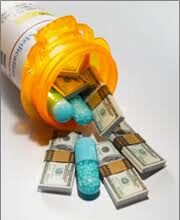Sure, you’ve been brushing your teeth since you were a kid, but that doesn’t mean you can’t learn something new! After all, every time you visit the dentist to find any issues, they usually offer some insight and instructions for how to elevate your at-home oral routine. It can also be a good reminder, because we all know how easy it is to get lazy with our oral care routine.
If you’re looking to step-up your oral routine to protect and improve your smile, we’ve got six tips you can start using right away.
(1) Focus on Preventive Oral Care
It is usually far easier to prevent a problem than it is to correct one. The same goes for your dental health. It is also more cost effective and less painful, especially if you’ve experienced a cavity or even a root canal!
The Center for Disease Control (CDC) offers some tips for keeping your oral health top-notch, alongside regular visits to the dentist. These include:
- Drink fluoridated water and lots of it, especially if you deal with a dry mouth
- Use oral care products that contain fluoride
- Brush two times a day
- Floss every day
- Stop using tobacco
- Limit alcohol use
- Keep diabetes in control or prevent it when possible
If you have elderly people or children at home, you should help them keep up with their oral care. And remind everyone to never skip the toothbrush, no matter how tired they may be. Even doing it poorly, but still doing it, is better than skipping it altogether!
(2) Schedule and Keep Regular Dental Visits
It is generally recommended that healthy adults and children visit the dentist two times a year. You’ll have an exam, cleaning and, potentially, x-rays. You may need to visit more often, which is why the ADA recommends you follow your dentist’s instructions on frequency and care. This can be especially important for smokers and those with diabetes.
One of the most common reasons people avoid the dentist, other than fear, is the cost! If you don’t have dental insurance, you can look around for some lower cost alternatives in your area. For example, sometimes you can receive low-cost dental services at local dental schools. You’ll receive good care that is supervised by a licensed dentist, but it will come at a discount. You can also contact your health department to see what type of resources are available locally. Some dentists may offer payment plans and dental programs to make care more affordable.
While you definitely need to visit the dentist no matter the state of your teeth, preventive care is one of the best ways to save on dental costs in the long run!
(3) Work to Re-mineralize Your Teeth
Your teeth are constantly being worn down by things you eat and drink. There are also medications and conditions that weaken tooth enamel. This makes remineralization a great goal to add to your oral care routine. Remineralization refers to the process of rebuilding your teeth’s enamel which makes them stronger and more resistant to damage.
Saliva acts to naturally re-mineralize your teeth, but you don’t have to leave it at that. There are plenty of oral care products that help strengthen teeth. Just look for products that are designed to both brighten teeth and remineralize tooth enamel.
You should also reduce the amount of sugar in your diet, and limit acidic foods because these demineralize your teeth. If you do eat or drink something that is acidic, be sure to brush or rinse within 20 to 30 minutes to reduce the damage.
(4) Stop Using Tobacco
You might remember this one from the list of CDC recommendations, but it should be repeated. Tobacco and nicotine are bad for your overall health, but they are also quite damaging to your teeth. They lead to stains that can be tough to remove, even with whitening products. They also create plaque and tartar, which actually promotes the development of cavities!
Tobacco also slows blood circulation and lessens your body’s resistance to bacteria and infection. Smoking and chewing tobacco slow down saliva production. According to Ameritas, this increases your risk of developing gum disease and other issues like mouth cancer three to six times over!
While these are highly addictive products, the best thing you can do for your health and your smile is to quit.
(5) Stay Hydrated
Do you have a dry mouth? This is a condition that can be caused by medications, salty foods, and some medical conditions. Talk with your doctor if you’re experiencing a dry mouth to see what you can do. You should also talk with your dentist because they can help you resolve the problem safely. They might recommend rinses or special sugar-free gums to help.
You’ll also want to drink lots of water, skipping things that promote tooth decay like cola, juice and sports drinks.
(6) Limit Sugar Use
Sugar is not only bad for your health, but it is bad for your teeth as well. Consuming sugar directly contributes to tooth decay by weakening your enamel. This allows bad bacteria to set in and create cavities.
Sugar also can contribute to the development of diabetes, which can also lead to tooth decay. This is because there is a link between diabetes and gum disease, gingivitis and similar oral health problems.
If you do eat or drink sugar, brush your teeth within 20 minutes. If you can’t get to your toothbrush, at least rinse well with fluoridated water. Be sure to swish well to remove as much sugar as possible.
You may even want to use a straw for any sugary beverage. This helps to limit how much of the drink comes in contact with your teeth.
Sources
https://www.webmd.com/health-insurance/uninsured-free-low-cost-dental
https://www.ncbi.nlm.nih.gov/pmc/articles/PMC1116309/
https://www.cdc.gov/oralhealth/basics/adult-oral-health/tips.html
https://www.healthline.com/health/remineralizing-teeth
https://www.mayoclinic.org/diseases-conditions/diabetes/in-depth/diabetes/art-20043848










